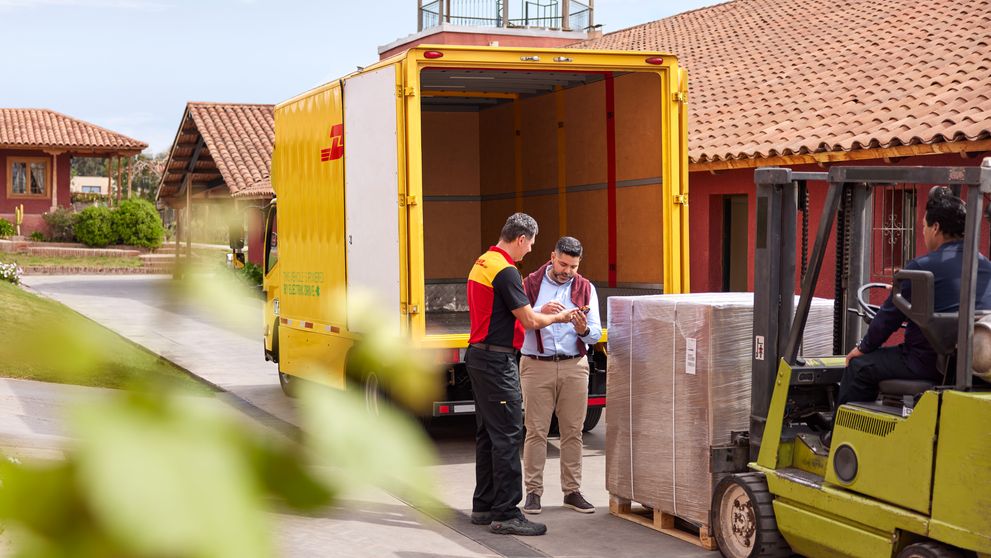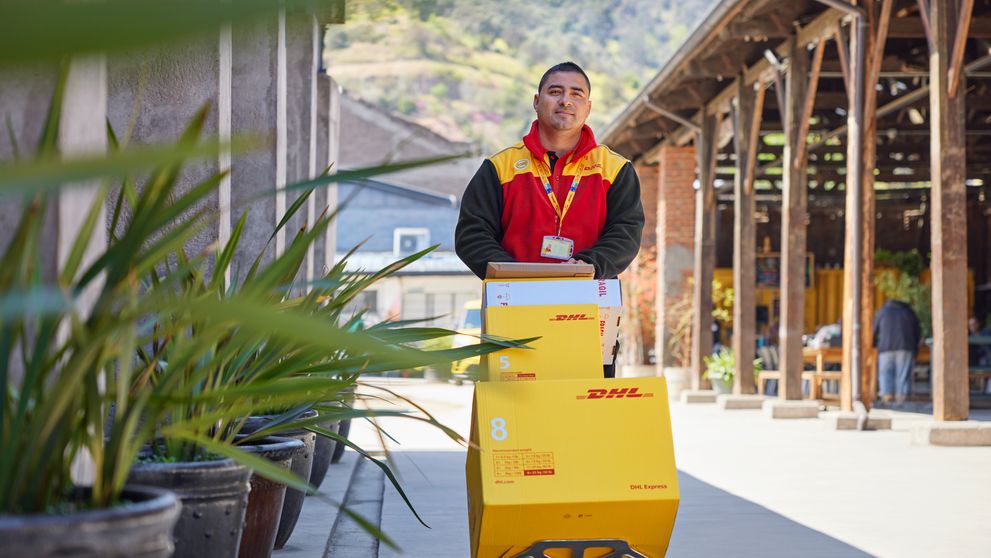Pakistan's textile industry stands as a cornerstone of the national economy, accounting for approximately 60% of its total exports and employing over 40% of the industrial workforce, according to the Pakistan Bureau of Statistics. As a textile exporter, navigating the complexities of international shipping can be daunting. This guide aims to simplify the process, providing insights into key areas like export regulations, quality control, packaging, and logistics. By partnering with DHL Express, you can leverage their expertise to ensure your textile shipments reach their destinations seamlessly.
Understanding export regulations and documentation
Before shipping your textiles internationally, ensure you're well-versed in Pakistan's export regulations. This includes acquiring necessary certifications, along with permits and licenses from bodies like the Trade Development Authority of Pakistan (TDAP) or the Ministry of Commerce. Understanding these legal requirements is crucial for smooth export processes.
Familiarize yourself with these key shipping documents:
- Commercial invoice: A detailed bill outlining the transaction, including product description, quantity, price, and terms.
- Packing list: An itemized list within the shipment detailing quantities, weights, and dimensions for customs verification.
- Bill of lading: A contract between shipper and carrier, serving as both a receipt and an outline of transportation terms.
- Certificate of origin: A document verifying the goods' origin, often critical for securing preferential tariff treatment under trade agreements.
Remember, customs procedures and tariffs can vary significantly across countries. Thoroughly research your target markets to avoid unexpected delays or costs.
Quality control and pre-shipment inspection
In the global textile industry, upholding stringent quality standards is non-negotiable. Meeting international shipping benchmarks like ISO and Oeko-Tex certifications and adhering to specific buyer requirements enhances your product's credibility and fosters trust with your international customers and clients. Implementing rigorous quality control measures throughout your production process ensures that your textiles consistently meet these high standards, safeguarding your reputation and facilitating seamless transactions.
To ensure your global textile shipments are export-ready, consider implementing these quality control best practices:
- Establish clear specifications: Define precise quality criteria for each product, encompassing dimensions, stitching, colorfastness, and any other relevant parameters.
- In-process inspections: Conduct regular inspections at various stages of production to identify and rectify defects early on.
- Final inspection: Perform a thorough final inspection before packaging to ensure all products meet the defined quality standards.
- Sampling: Implement a statistically sound sampling plan to verify the quality of the entire lot based on a representative sample.
- Record keeping: Maintain detailed records of all quality control checks and inspections for traceability and future reference.
Pre-shipment inspections play a crucial role in risk mitigation. These inspections verify that your products conform to the agreed-upon specifications and international quality standards, reducing the likelihood of costly rejections or returns upon arrival at the destination.
Packaging and labeling for optimal protection
Proper packaging and labeling are essential to safeguard your textile products during transit. Consider the specific needs of your textiles, factoring in fabric type, fragility, and the climate of your shipment's destination. For delicate fabrics, prioritize protective measures like acid-free tissue paper and breathable garment bags. Heavier or more durable textiles may require sturdy corrugated boxes and protective padding to prevent damage from handling and potential impacts during shipping. Remember, climate considerations are key; if your goods are heading to a humid region, ensure your packaging includes moisture-resistant materials to prevent mold or mildew.
Accurate and compliant labeling is equally crucial for a smooth shipping experience.
- Fiber Content: Accurately declare the fiber content of your textiles, complying with international labeling standards. This information is essential for customs clearance and consumer transparency.
- Country of Origin: Indicate the country of origin on your labels, adhering to relevant regulations and trade agreements.
- Handling Instructions: If textiles require special handling, such as "fragile" or "handle with care," include these instructions prominently on the packaging.
By prioritizing careful packaging and accurate labeling, you protect your textile products during transit, enhance customer satisfaction, and avoid potential delays or complications at customs.
Optimising logistics and choosing the right shipping mode
Efficient logistics is the backbone of successful textile and garment exports. When choosing a freight forwarder or logistics provider, prioritize expertise in textile handling, a strong global network for seamless connections, advanced tracking and visibility tools, a proven track record of reliability, and competitive pricing.
Consider your shipment's urgency and volume when choosing a shipping mode. Air freight offers speed but at a higher cost, while sea freight is economical for bulk shipments but with longer transit times. Land freight may be suitable for regional deliveries, balancing cost and speed.
Partnering with DHL Express for logistics in the textile industry

Navigating the complexities of international fabric shipping and ensuring the seamless delivery of your garments can be a significant hurdle for textile exporters in Pakistan, especially those new to the global market. However, with the right logistics partner, you can turn these challenges into opportunities. This is where partnering with a reliable and experienced logistics provider such as DHL Express can add value to your shipment and logistical operations. By choosing DHL Express, you can leverage our expertise and shipping advice to support your business in optimizing your logistics processes as you ship your fabrics and textiles internationally.
We provide a suite of value-added services specifically designed for the textile industry:
- Expert guidance on garment packing materials: Ensure your textiles are protected during transit and comply with international standards.
- Customized solutions: Whether you're shipping delicate fabrics or bulk orders, we tailor our services to meet your unique needs.
- Dedicated customer support: Our team is available around the clock to offer personalized assistance and support.
Partnering with DHL Express empowers you to streamline your logistics in the textile industry, gain a competitive edge, and unlock cost savings. Experience a seamless shipping process, enhance customer satisfaction, and propel your textile business to new heights in the global marketplace.
Open a DHL Express business account today and embark on your journey to effortless international textile shipping.























